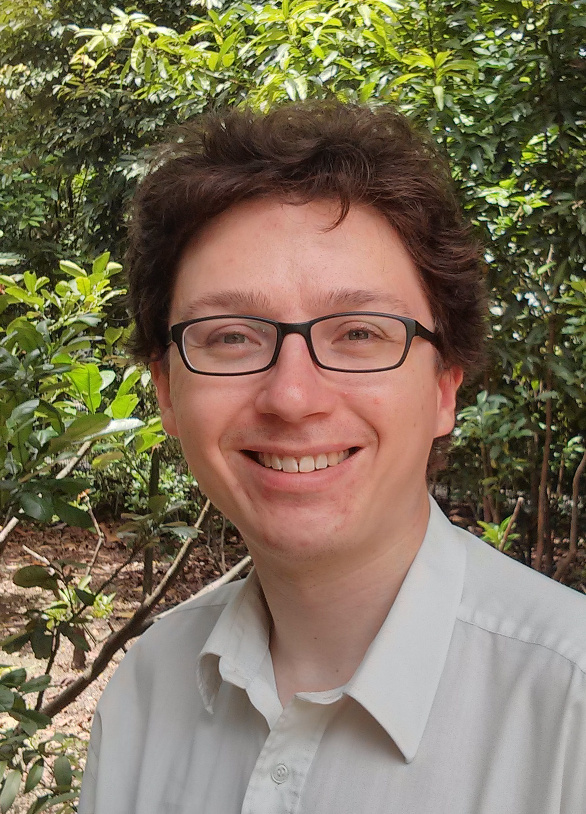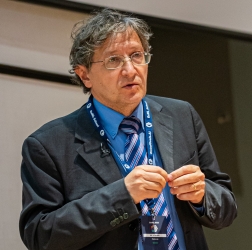Submitted by Rachel Gardner on Wed, 17/09/2025 - 11:50
 A new fund that seeks to advance the pace and impact of maths discovery by supporting projects important for the field has made a grant to two researchers here.
A new fund that seeks to advance the pace and impact of maths discovery by supporting projects important for the field has made a grant to two researchers here.
 As announced today, Jamie Vicary, Professor of Future Computation (right), and Pietro Liò (left), Professor of Computational Biology, are to lead one of the first projects supported by The AI for Math Fund.
As announced today, Jamie Vicary, Professor of Future Computation (right), and Pietro Liò (left), Professor of Computational Biology, are to lead one of the first projects supported by The AI for Math Fund.
Their project on New Categorical and Topological Foundations for AI and Machine Learning explores novel neural network architectures based on more bespoke mathematical representation spaces and structures, including sheaf theory and category theory.
As the researchers say, these novel architectures may be able to incorporate key structural symmetries and properties of mathematical objects, and thereby enable the creation of new tools that assist in proof construction, and offer practical advantages beyond the current AI Copilot paradigm.
Bridging the gap between machine learning and traditional mathematical fields
Exploring the possibility of models that can represent and manipulate proof state in rich type theories may show us how to bridge the gap between machine learning and traditional mathematical fields.
The new AI for Math Fund, managed by Renaissance Philanthropy in partnership with founding donor XTX Markets, has awarded $18 million (£13.2 million) in grants to researchers. This is one of the largest ever philanthropic commitments supporting the development of AI and machine learning-based tools to advance mathematics.
The AI for Math Fund seeks to advance the pace and impact of math discovery by supporting projects that are important for the field, but that no one academic or industry lab has the incentive to do. It supports projects that are less likely to happen in a business-as-usual scenario, and have the potential to advance the field as a whole. These include developing open-source, production-quality tools; increasing the size, diversity, and quality of datasets required for training AI models; and increasing the ease-of-use of tools so that they are adopted by mathematicians.
The project here is one of 29 projects to benefit from the new funding, with grant awards ranging up to $1 million (£736,000). Recipients include mathematicians and researchers at universities and organisations working to develop systems that help advance mathematical discovery and research across several key tasks.
Launched in December 2024 with a nine million US dollar commitment from XTX Markets, the Fund received 280 submissions from teams of researchers and mathematicians around the world. The number of high-quality applications was such that XTX Markets doubled its funding to $18 million.
- Renaissance Philanthropy is a nonprofit organisation that fuels a 21st-century renaissance by increasing the ambition of philanthropists, scientists and innovators. In the first year, Renaissance Philanthropy catalysed more than $214M in philanthropic funding for science, technology, and innovation, launching 10+ initiatives across AI, education, climate, health, and scientific infrastructure. Read more about Renaissance Philanthropy here.
- XTX Markets is a leading algorithmic trading firm that uses state-of-the-art machine learning technology to produce price forecasts for over 50,000 financial instruments across equities, fixed income, currencies, commodities, and crypto. It uses those forecasts to trade on exchanges and alternative trading venues, and to offer differentiated liquidity directly to clients worldwide. The firm trades over $250bn a day across 35 countries and has over 250 employees based in London, Singapore, New York, Paris, Bristol, Mumbai and Yerevan. Read more about XTX Markets here.

